Last year’s Nobel Peace Prize nomination seemed like the moment Susana Valadez had worked for her whole life. The founder of the Huichol Center for Cultural Survival had spent the past four decades weaving together with painstaking care the components of an organization that provided the Wixárika people with culturally relevant employment and training, a lifeline in times of crisis, a Wixárika school, a vast ethnographic archive of Wixárika visionary art and cultural documentation, and a permaculture training site on four acres of land. A vibrant community had grown up around the Center in the town of Huejuquilla El Alto, Jalisco. The only thing they lacked was money.
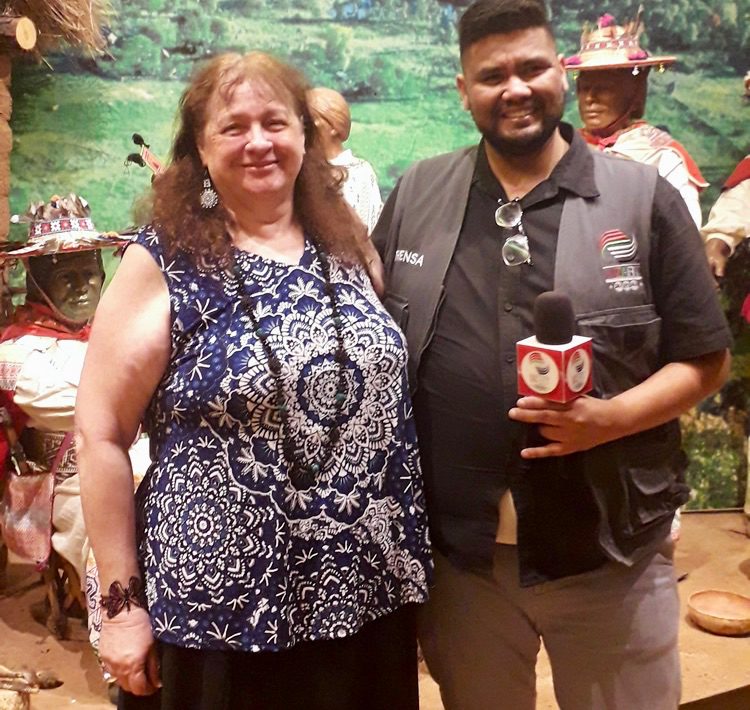
The Nobel nomination seemed like a perfectly timed gift from Heaven. Susana’s hope was that this recognition could be leveraged into ongoing support for the Center so that she could focus her attention on organizing the massive amount of anthropological information amassed over the years in the archives, with dreams of creating an interactive Wixárkia museum, and start thinking about writing her memoirs.
Ironically, while busy tending to the Nobel nomination, traveling around and giving interviews, and opening new windows of opportunity for support, Susana chose to give up the main source of funding for the Huichol Center: the marketing of art and jewelry in art fairs, pop-up shows and to galleries. She made the hard decision to step away from her showroom in the faraway coastal town of Sayulita, Nayarit, and her popular Blue Corn Mama restaurant and adjacent Tanana Gallery of Wixárika art.
The gamble has thus far not borne fruit in the way that has been needed to sustain the multiple Huichol Center operations, and the crisis was already beginning to manifest when Covid-19 hit. Now that the income stream from the sales of their products has dried up, the Huichol Center for Cultural Survival is fighting for its own survival, and this 40-year-old institution is on standby as Susana pays her staff with the only thing she has to give: vegetables from the Huichol Center permaculture farm, and fish from her abundant tilapia ponds.
Now Susana’s fighting for the immediate survival of her community and trying to develop a strategy for the Huichol Center in a post-Covid world. She is launching a Patreon campaign and gearing up to ask the world to help her — first of all, to help feed the many people in their community left without employment, and then to create a replicable model based on the success of that Huichol Center permaculture farm so that the families throughout the Wixárika homeland will be able to achieve a degree of food sovereignty and resiliency during this crisis and those that are sure to follow. “From Sewing Beads to Sowing Seeds” is the slogan — a takeoff on the one she used in the Huichol Center’s early days: Transforming Field Hands to Creative Hands… Handcrafts, Not Handouts.
To her surprise, Susana has found herself coming full circle. Thanks to the Huichol Center, three generations of Wixárika families have been able to earn a decent living in their homes in the Sierra making beaded jewelry and sculptures inspired by their cosmovision, instead of migrating to the far away coastal areas to work in the toxic tobacco fields. But now the time has come to return to their agricultural roots – but in a sovereign, healthy, culturally appropriate way.
Here’s Susana from the trenches:
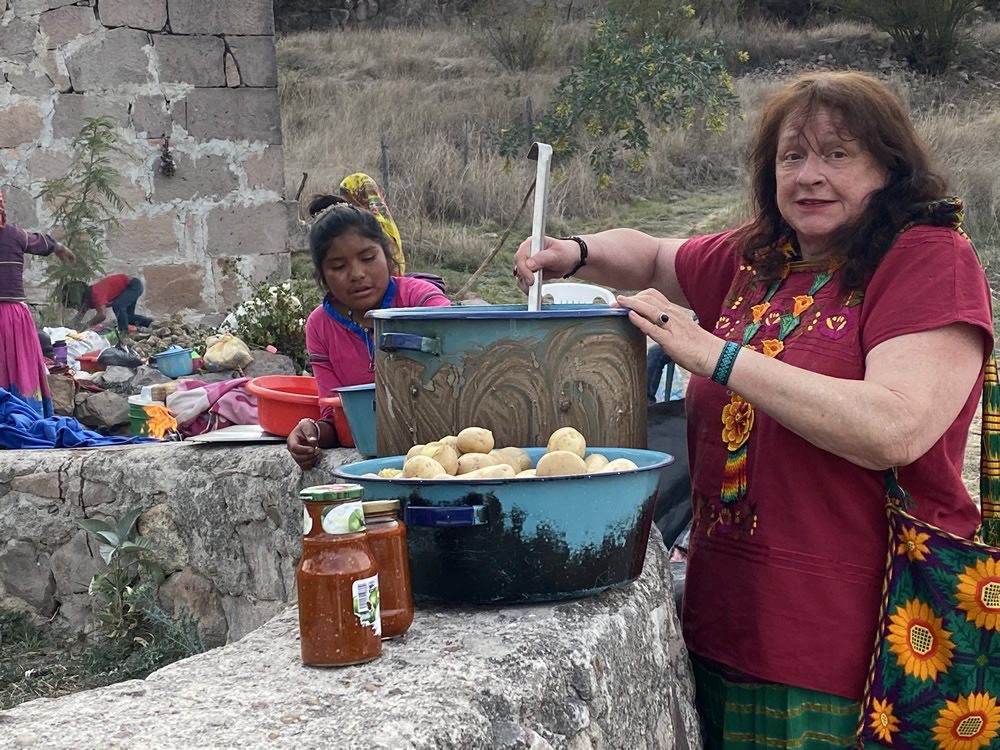
Can you tell me a bit about what’s going on there in the Sierra with the advent of Covid-19?
The global pandemic is bombarding the Wixárika people and culture with a deluge of catastrophes that are having a domino effect in this already vulnerable population. Even though as of yet there are no cases reported in the region, still their economic lifelines that depend on the outside world have been severed and are rocking the boat to the extent that the entire ship may go down.
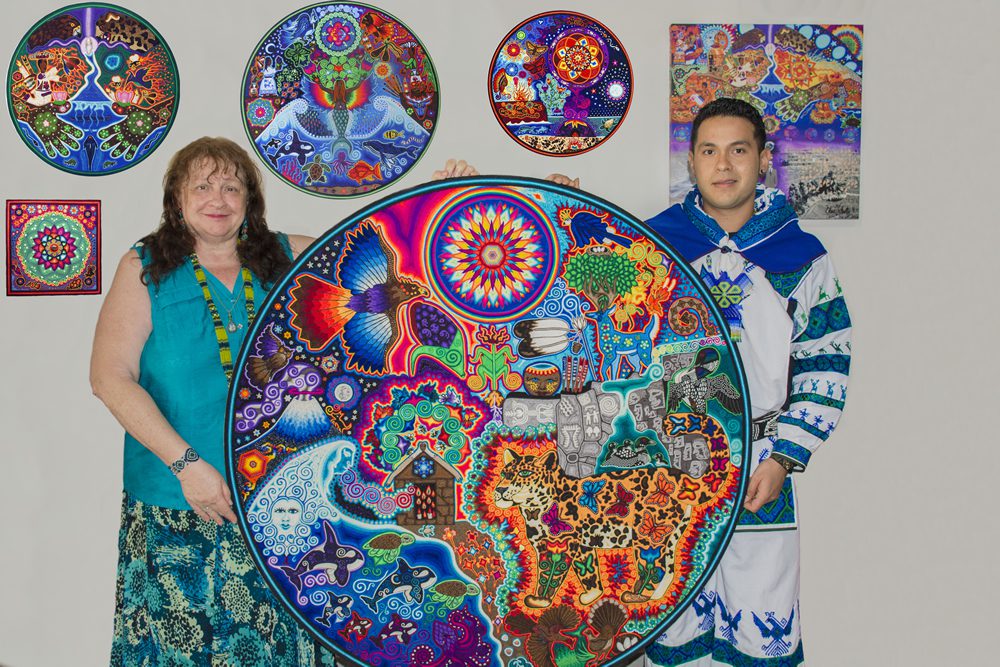
As the income streams suddenly dried up for the artists, musicians, educators, cultural exhibitors, ceremonialists and others who have worked so hard for so many years to stay afloat and bring money into the impoverished communities, the ripples in the pond are affecting all aspects of Wixárika life. It was not so long ago that the Wixárika economy was based on barter, but because of the intrusion of the dominant culture into their traditional way of life, their corn trading economy was forced to transition into a cash economy. Over the years they created an economy rooted in the sale of their native crafts to people visiting their communities or to sell in national and global marketing locations, so they have come to depend on the influx of money from the outside.
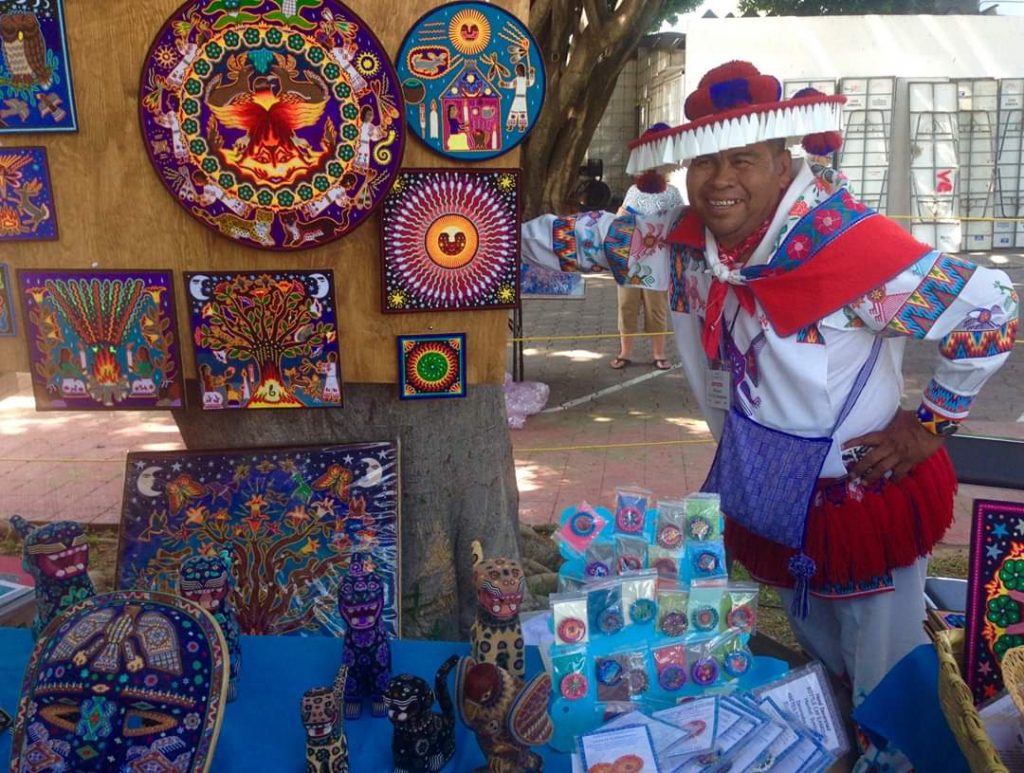
Their dilemma is that now that everything is shut down locally, regionally and internationally, there is no income, and the revival of their barter economy requires a surplus of things to trade, which are non-existent. The results of this crumbling house of cards can immediately be seen in food shortages, the closure of the few community grocery stores, no money to pay for things such as gasoline, electricity, medical emergencies, internet, cooking gas, soap, personal hygiene items, and all the things they have come to depend on that come from the outside world into their remote communities.
This is also affecting Wixárika ceremonial life because in order to complete their ritual obligations to their creators, they are required to go on the sacred deer hunt, to make ceremonies, and to travel to far away sites to leave offerings. They are unable to perform their sacred duties if they have no money to pay for gasoline and travel. The severity of this crisis threatens to undermine the central core of Wixárika spiritual life.
For this ancient tribe in the modern world, the effects of not having money for people who have cell phones or computers to purchase access to the internet is impacting them in many ways. First, it is impeding their ability for intra-tribal communication among Wixárika in distant communities. They are cut off from each other near and far, which impacts the entire Wixárika nation. They now have little communication with their legal representatives who represent them in the decades-long struggle to protect their sacred sites from the mining companies and other industries that are devastating the Wixárika sacred sites and traditions.
They also have no access to their clients and stores in the outside world. Many had planned exhibits and events that are now on hold. But the worst part of the lack of internet is the dire effect on Wixárika education. The schools are closed, and the government requires the students to do their lessons online using computers or cellphones, neither of which are accessible to most Wixárika families. This paradox has resulted in students flunking the school year and has caused many of them so much stress and disillusionment that they are resolved not to return to school. It has disheartened a whole generation of schoolchildren of all ages and dealt a grievous blow to the parents who have worked so hard to provide their children with an education.
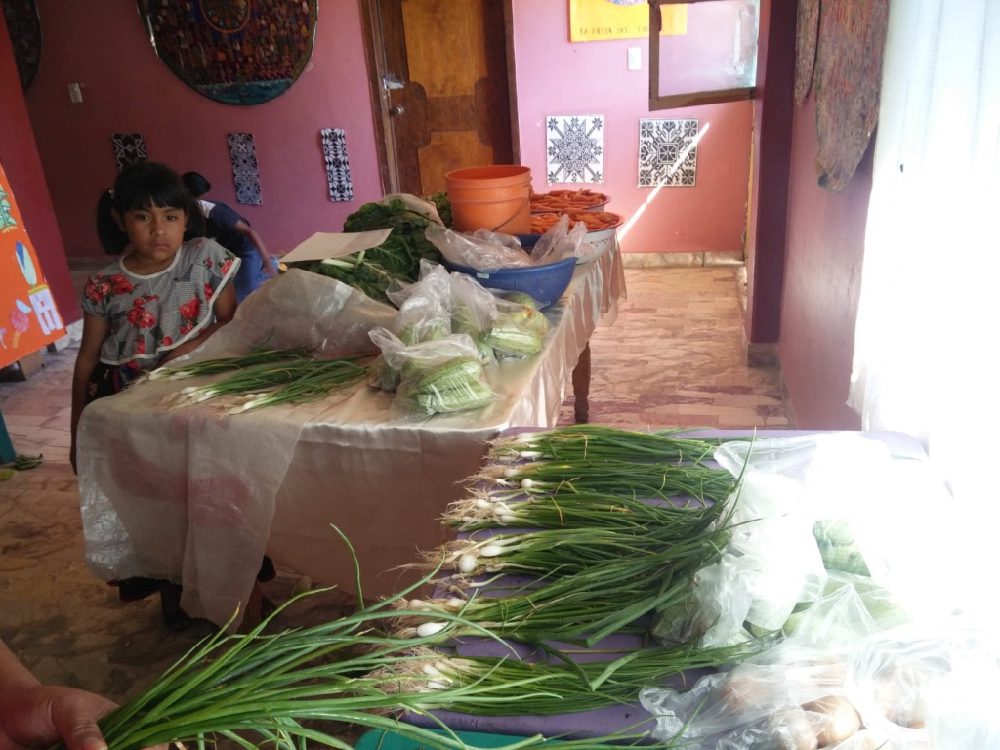
Many of the people who have created a livelihood for themselves in the outside world are sadly returning to their communities because they can no longer afford the cost of living in the cities. Inherent in their return to their remote homeland is the possibility that they may carry the virus and unintentionally infect the people.
Quarantine is unlikely to be enforced when someone returns; since so much of Wixárika life is centered on communal living, the virus could spread like wildfire. Social isolation for sick people is practically impossible because most families live in shared spaces with no place to separate infected people and no training for caretakers to protect themselves.
Frequent hand and clothes washing is also not an option for many families who have no money to purchase soap and where water is in short supply. This is compounded by the absence of medical care and facilities in their communities, which means that if cases emerge they must travel to the cities to get hospital care. This is virtually impossible because, again, there is no money to pay for gas for the long journey. Even if they could make the trip, family members who accompany them are unable to sustain themselves in the cities. In addition, they cannot afford to purchase medicines and exams not available at the public health facilities because of shortages.
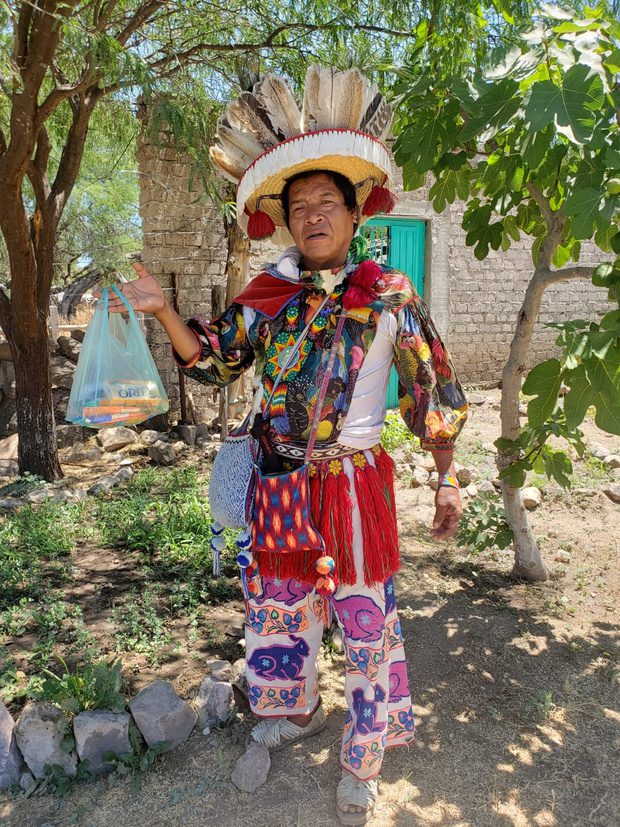
What has been the Huichol Center’s response to the Covid-19 crisis, and what have you been able to do, given the fact that the budget has basically gone away?
For decades, this charitable foundation has stood its ground against the adverse effects of malnutrition and immunity issues. But the inexorable forces of poverty that threaten the endurance of these age-old original peoples and their profoundly spiritual ways are fast approaching the “tipping point of no return.” The guardians of this indigenous wisdom reveal the messages of the Creators and mentor each new generation with the oral histories and sacred practices that are passed down in the ceremonies. They are the medicine people who carry lessons for all of humanity to learn from, especially now.
But the voices of the tradition keepers are fast fading into echoes of the past. The new rules in the world of Covid-19 are lurking on the horizon of a new age, and as they become the new normal, these forces are nudging forward the hands of the Wixárika extinction clock. So our resolve to do what it takes to endure — to overcome the calamitous ticking away of this unique and beautiful millennial culture — weighs heavily upon us. We pray that the strong infrastructure we have meticulously put into place over the decades will give us the wherewithal to prevail over the life-and-death challenges that confront us now.
A skeleton crew of longtime Huichol Center staff and participants — including teachers, administrative personnel, artists, cooks, maintenance and groundskeepers and others — is still showing up to volunteer, despite the loss of their salaries. They are fully cognizant of how the economic impact of the coronavirus pandemic has led us all into uncharted territory, and have come together to help navigate the rapids.
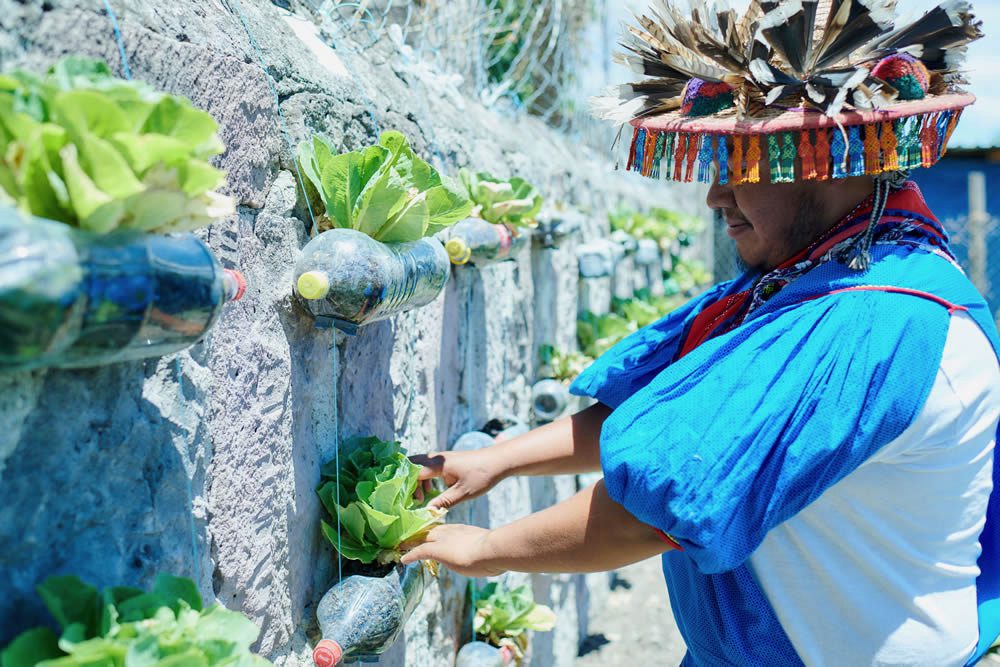
The Huichol Center’s income-generating apparatus depended on marketing the art and jewelry made by our highly skilled artists. That apparatus has collapsed, and along with it, our economy. That means the Huichol Center is no longer in the position to support the projects that provided livelihood for so many families and students. Sadly, many of our decades-long programs have been suspended indefinitely.
But there is one program that is our saving grace: the Permaculture Demo Site, which teaches people how to grow their own food, requires minimum funding, and is still up and running.
The Huichol Center Permaculture Demonstration Site, established in 2010, is racing against time to feed Wixárika families in crisis. We fear a coronavirus famine is a strong probability that could eventually hit us like a tsunami. Our eco-friendly techniques for creating sustainable organic gardens, orchards and farms will serve as an urgently needed buffer in the months ahead. For years we have been teaching adults and children permaculture and other low–cost agricultural practices that co-exist with their traditional relationships to the spirit of the land. The eco-technologies practiced at this community learning center include water conservation, small animal husbandry, aquaponics, organic gardens and orchards, seed banking, composting, soil rebuilding, worm farming and much more.
In order to avert the potentially catastrophic effects of Covid-19, it is of utmost importance that the Huichol Center focus on planting many more gardens, crops and fruit trees to significantly increase food production. In the process we have thus transitioned from “sewing beads to sowing seeds.” Now the rainy season is coming, and we need to expedite the creation of the emergency gardens that are now underway. With the help of the Huichol Center, family providers are now growing healthy organic food to ward off starvation, sustain their families and boost their immunities until they can rebound from the devastating blow to their economic self-sufficiency.
Expanding food production on the farm with more gardens, fields and fish ponds will both grow food and stimulate economic growth in this destitute population. By doing this we are creating a prime example of food sovereignty, as well as creating new sources of income to replace what has been lost —farm-to-table surpluses can be stored, bartered or sold.
To accomplish this, the Huichol Center is using its existing infrastructure to expand the emergency garden project, but in order to do so it will literally require “seed money” to get it off the ground and sustain it until it takes root. Donations will allow us to purchase seeds, irrigation hoses, garden tools, manure for the compost, feed for animals and fish, gasoline for garden trucks and to pump water, salaries for garden personnel, and money to pay monthly bills (i.e. electricity, phone, internet, rents, etc.).
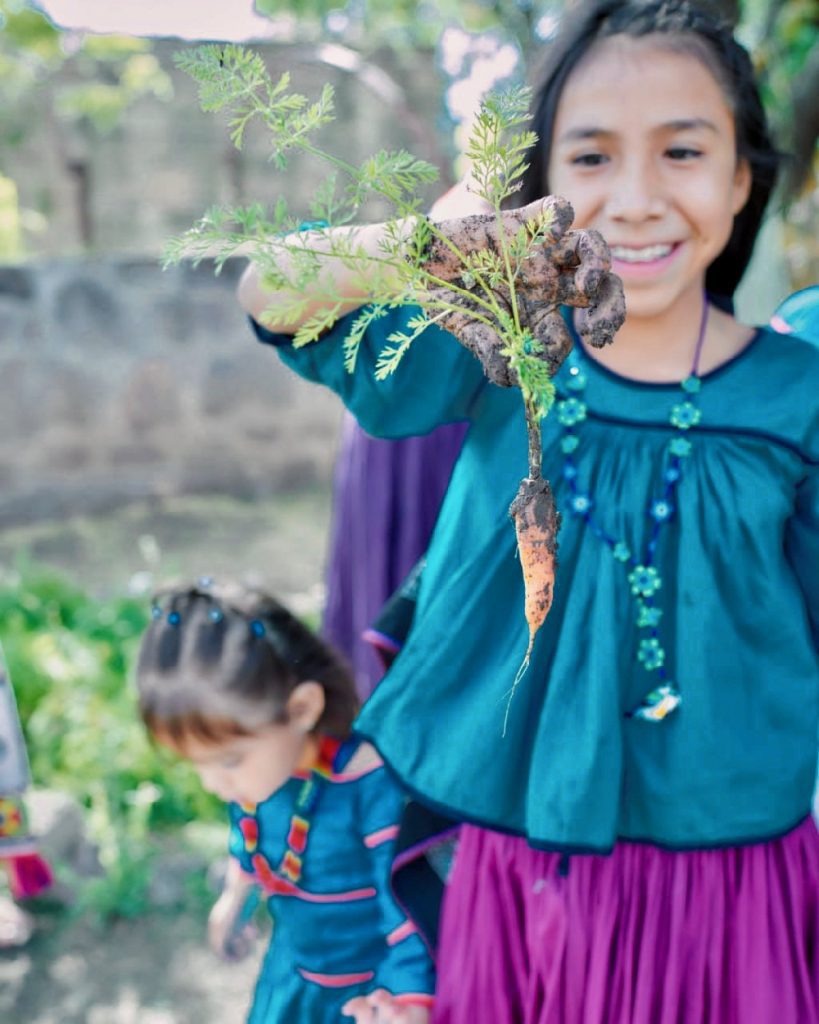
In addition, the Huichol Center crew is volunteering in the gardens in exchange for food. Now that they don’t receive salaries, funds are also needed to subsidize the purchase of basic non-garden food staples from stores, as well as to help them to pay their rents and monthly bills.
We are doing everything within our power to keep our doors open and be of service to the Wixárika people. We are thankful for everyone in our community and the multiple resources we actually do have. There is no doubt that the Wixárika people will get through this, as their resilient culture has managed to survive in the face of relentless threats that have befallen them in the past. Future generations of Wixárika descendants will be much better prepared to hold their ground as they plant seeds of hope for humanity’s future.
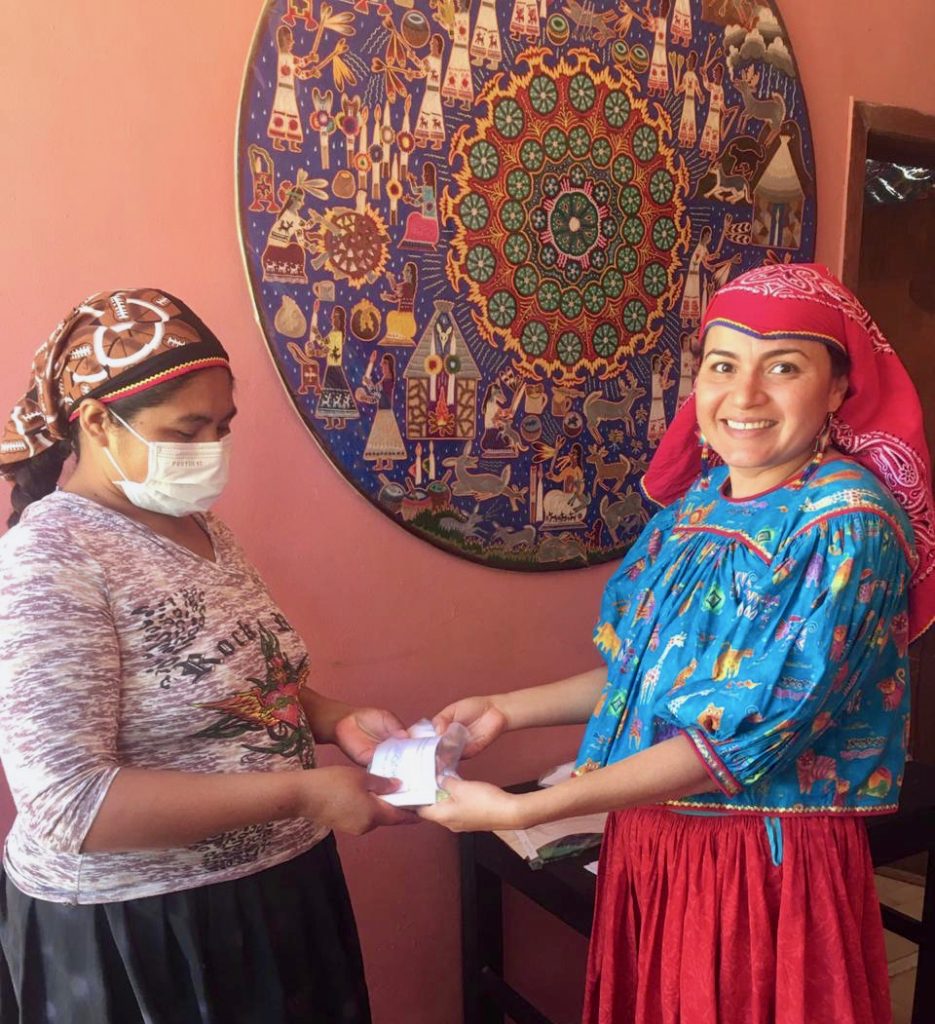
Have these last months taught you some things about the need to make the center more sustainable and the people more sovereign?
Definitely. To tell you the truth, I have been terrified that it could all fall apart. But what I’ve come to see is that we are an organization that has endured against all of the adversity and odds stacked up against us for decades — so why give up now?
The Huichol Center has done so much with so little financing that just because the world is on the verge of economic collapse does not mean that we now concur to just wither away and die on the vine. On the contrary, now is a good time for us to analyze what we have been doing right all these years, and how we can build upon and recalibrate those strategies to work for the Huichol Center and the Wixárika people in the best and worst of times, with or without money.
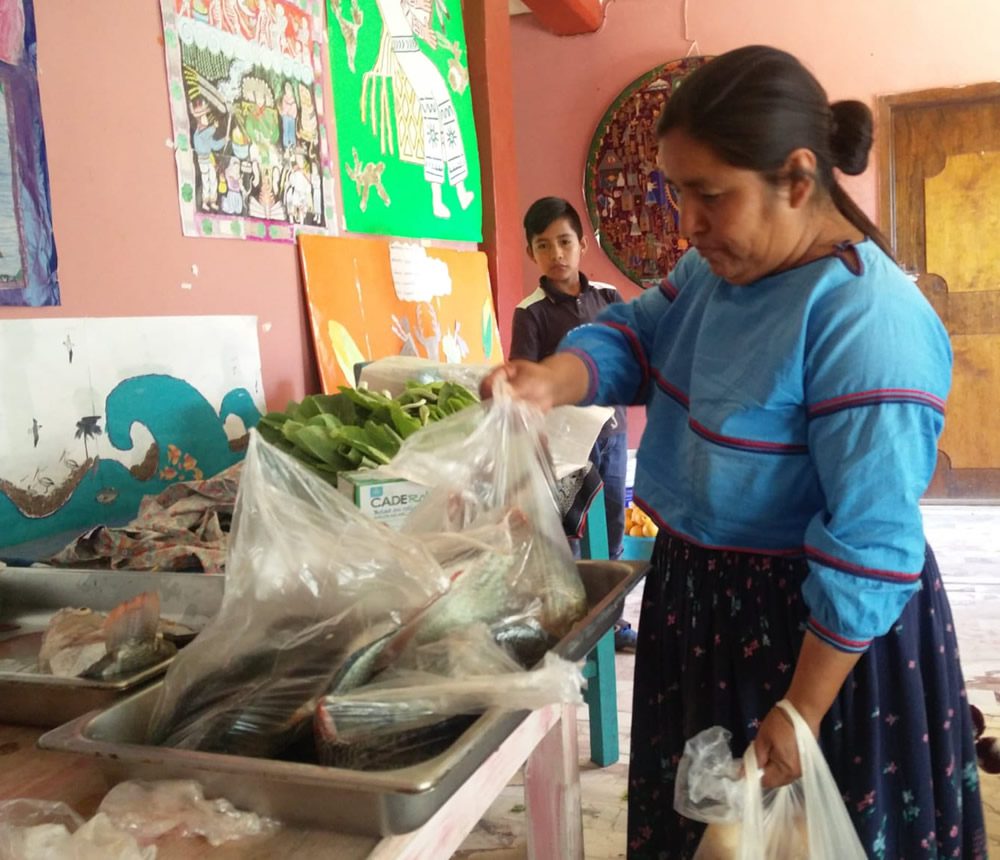
We must sever our dependency on the pre-pandemic lifestyle, and become as autonomous and self-sufficient as we possibly can, by living off the grid, just the way the majority of the Wixárika people have been doing until very recently. Our best resource to accomplish this goal right now is the permaculture groundwork we have been putting into place for decades, where Mother Nature’s wisdom and priorities lead the way for us to follow, and begin to re-envision the new us.
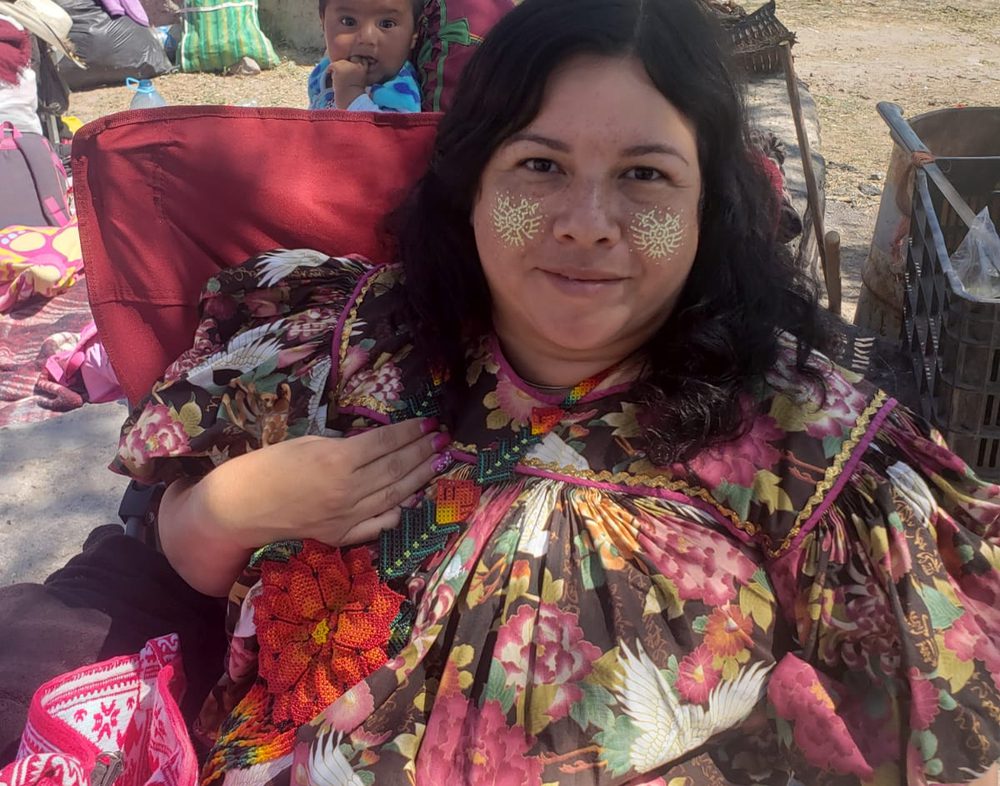
Have they taught you anything else?
Our resiliency is being put to the test right now, and our ability to think outside of the box and pull ourselves, and each other, out of the doldrums will guide us all on the path to recovery. We are being reminded that we all have the power — as individuals and as communities — to mold even the worst circumstances into opportunities, where we commit to working together to reinvent ourselves and put into place new priorities. And we’re seeing that these are the ways in which we create much needed sustainable sovereign communities.
This global pandemic is a very loud call to all of us earthlings to share the common ground, and to work together to find opportunities to create a new paradigm for life on our imperiled planet. In other words, the Huichol Center is not alone in our struggle to prevail in these tumultuous times.
We’re all in this together, so we may as well join forces and partner with other people and organizations throughout the world that share our vision of strength in numbers and the spiritual powers we all possess to make things better.
This is the greatest lesson that thus far stands above the rest. In order to come together in the spirit of healing Mother Earth, we must be the ones to light the way through the dark abyss of uncertainty that looms over the future of us all.
Learn more about The Huichol Center for Cultural Survival here and about Susana’s Patreon campaign, “From Sewing Beads to Sowing Seeds,” here. And then read on for Part Two of this five-part series excerpted from Susana’s forthcoming memoir. (Read the backstory here: From Sunset Strip to the Sierra Madre to a Nobel Nomination)
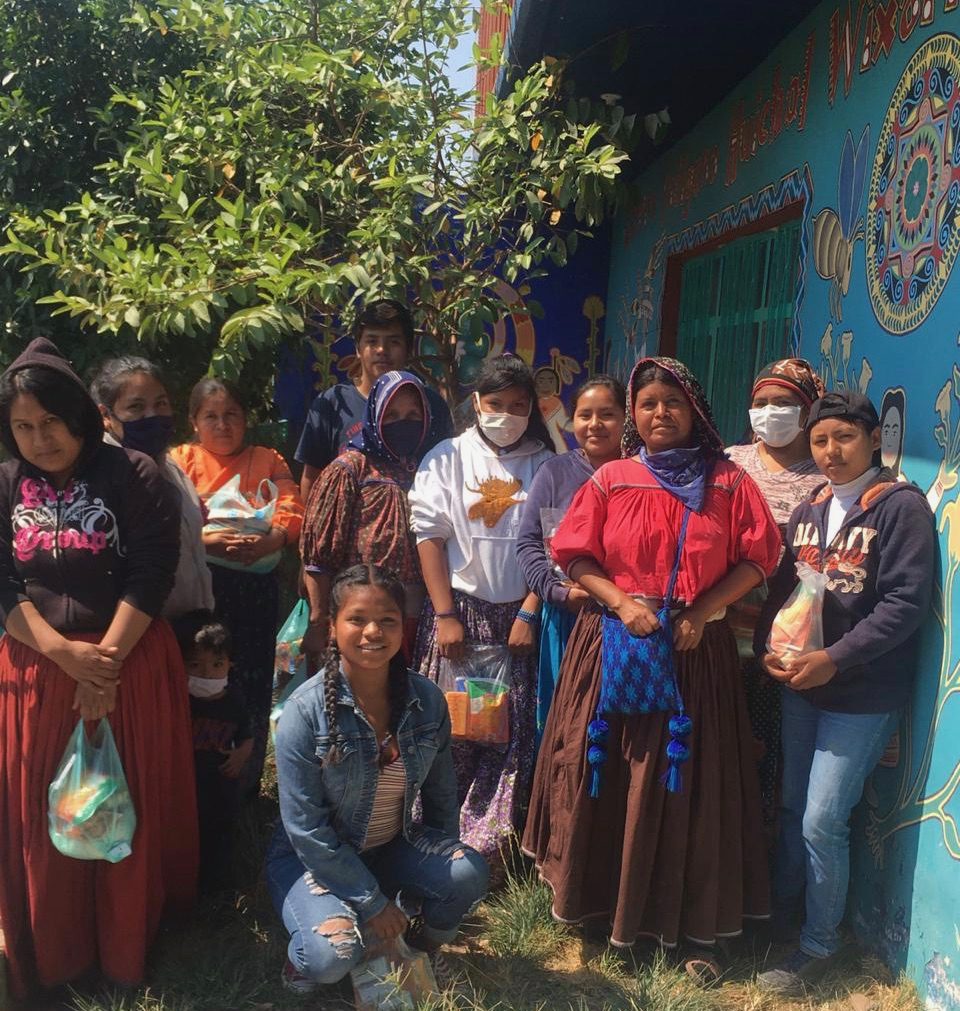
- ‘Planting Is a Right’: Guadalajara’s Urban Ag Rebels Rally Against Proposed Regulations — Again - January 21, 2026
- The women who kept a Mexican pueblo above water — and stopped a megadam - January 15, 2026
- Reading the Earth: How Mexican scientists are using nature to find the disappeared - January 7, 2026
Huichol Huichol Center for Cultural Survival Permaculture Susana Valadez Wixarika
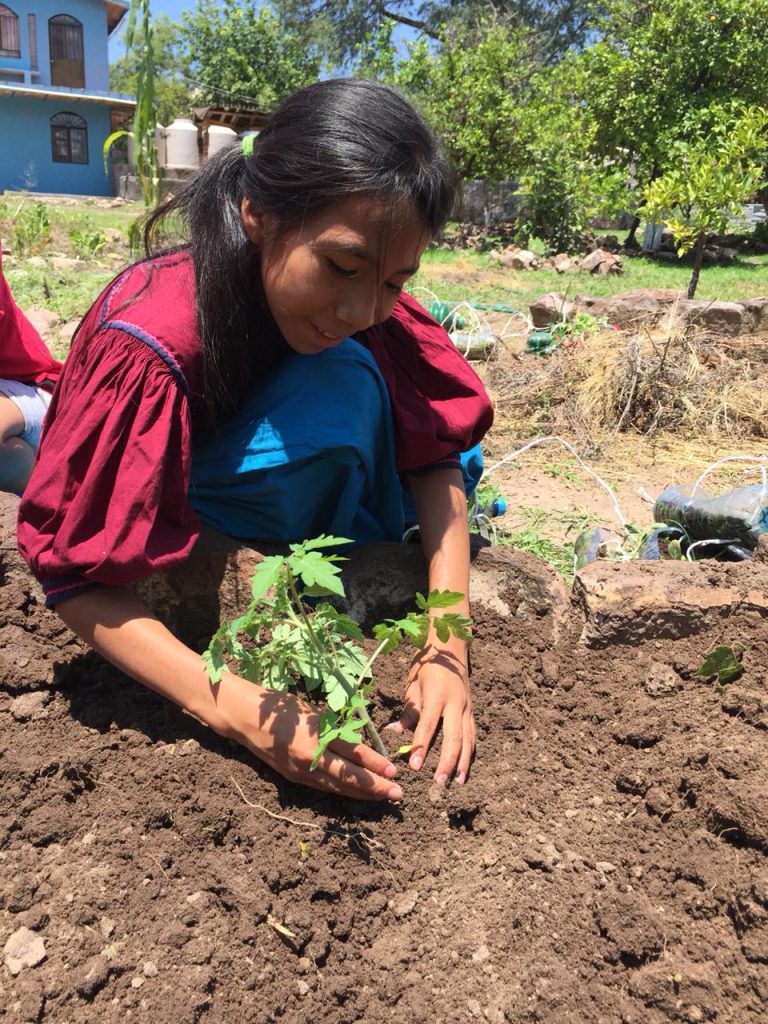
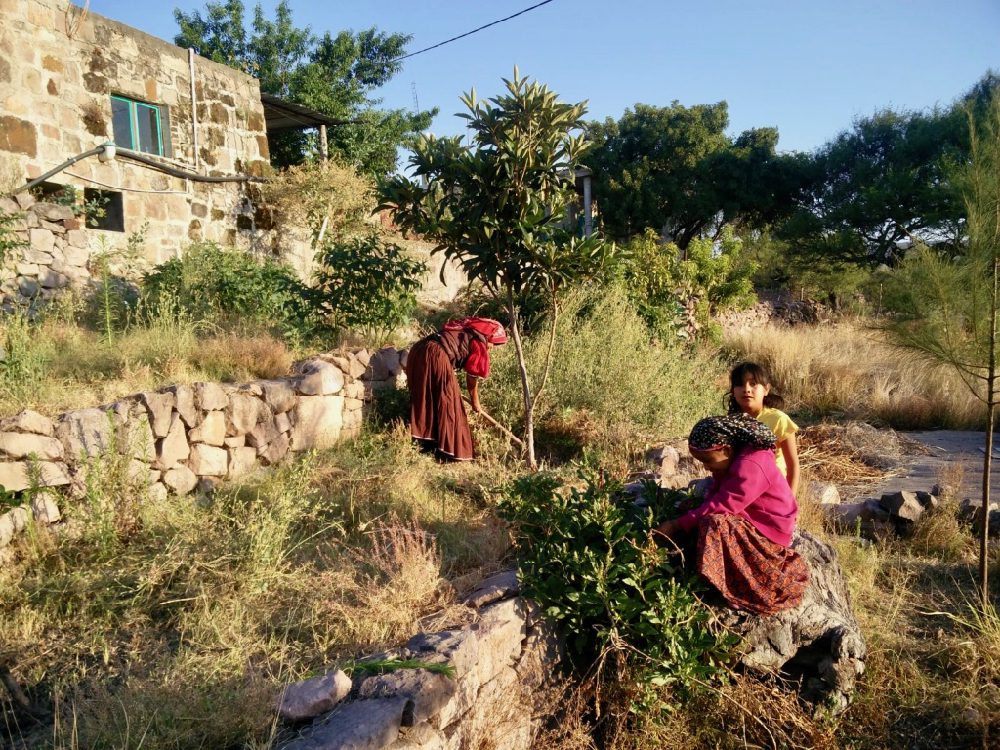
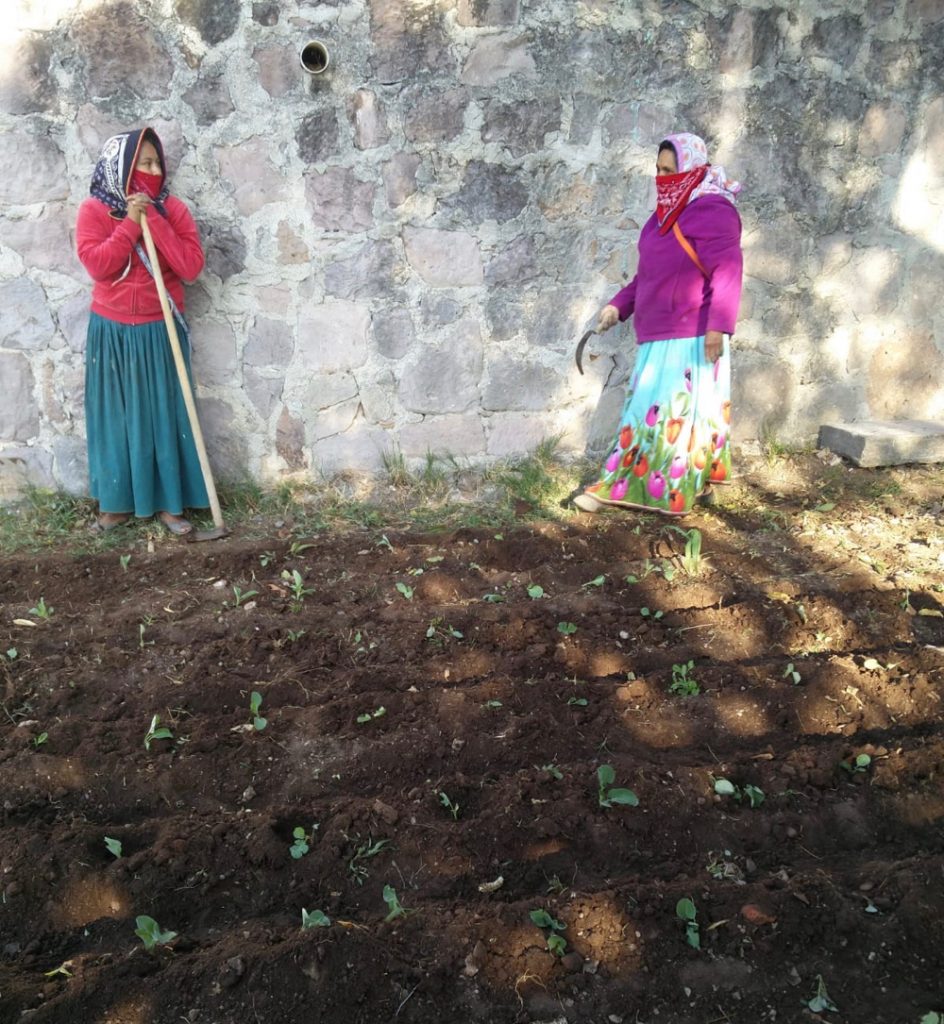
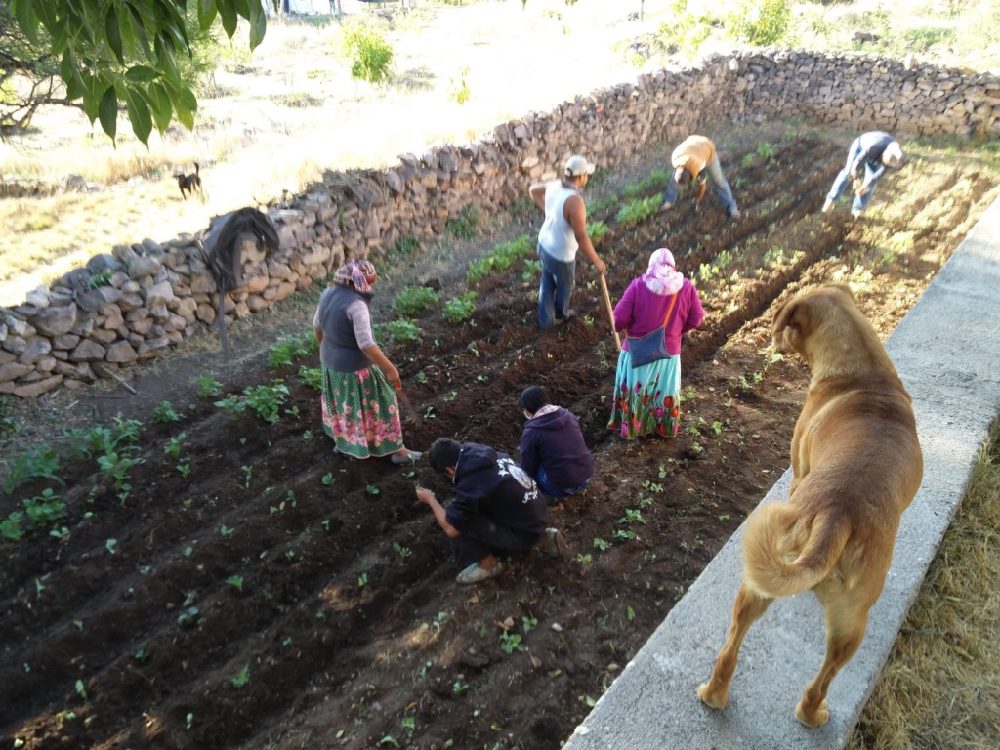
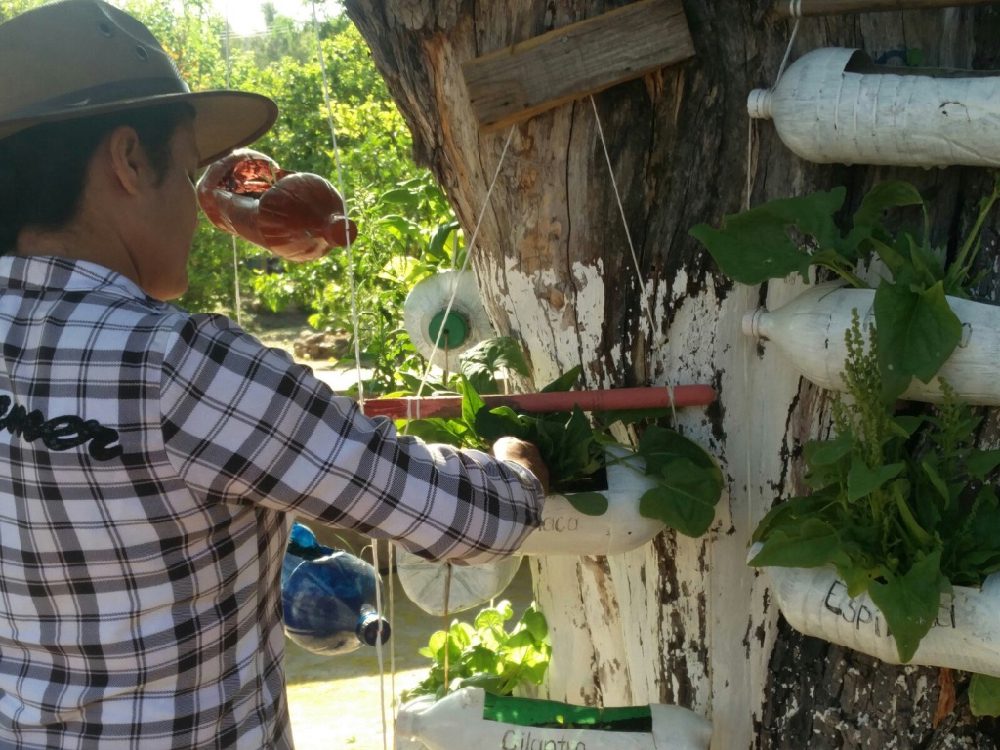
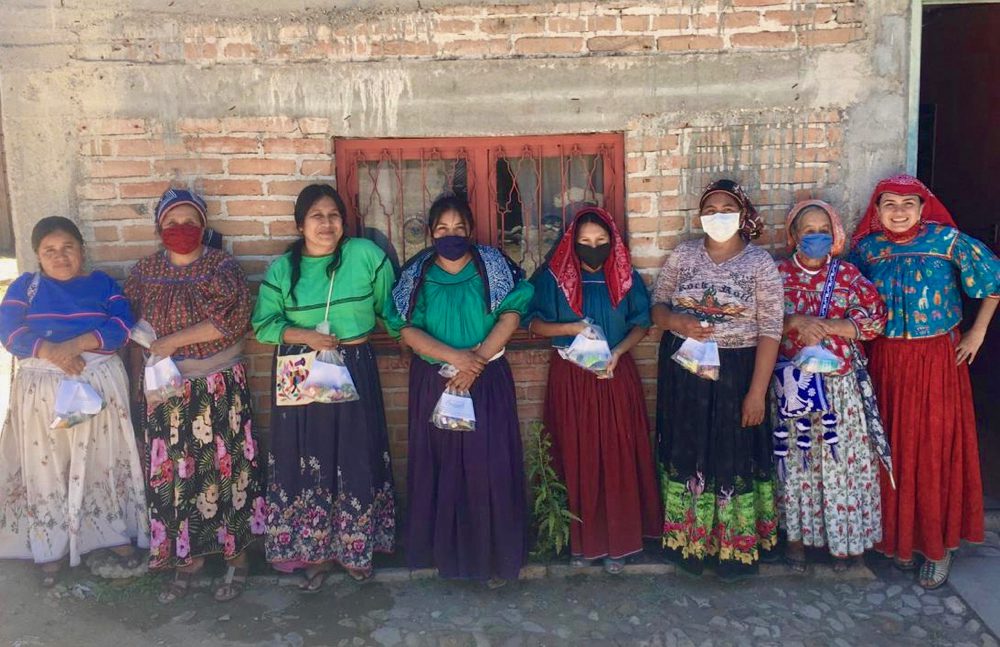
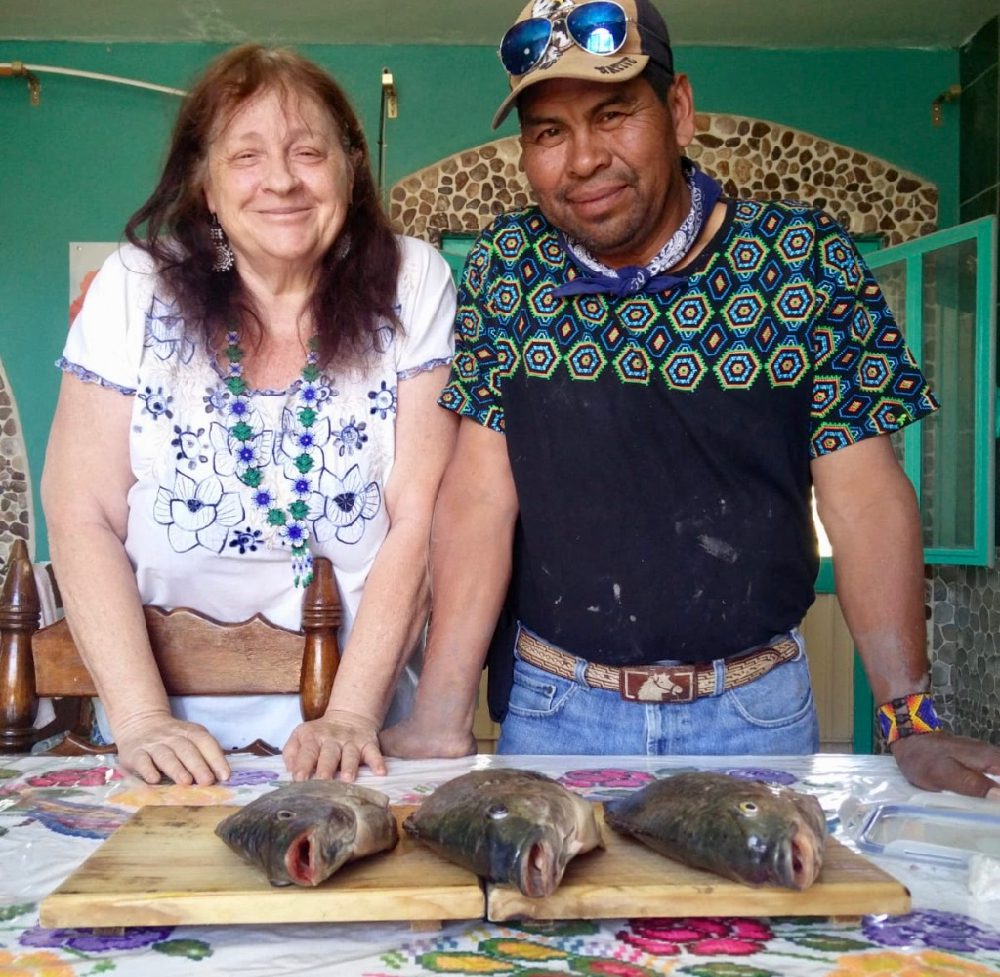
Conngratulations on this project and this fine collaboration with championship photography about it. I hope many people will make at least a small contribution at the Patreon page https://www.patreon.com/thehuicholcenter and keep this very important life-or-death effort afloat — for the wixarika, for the world!